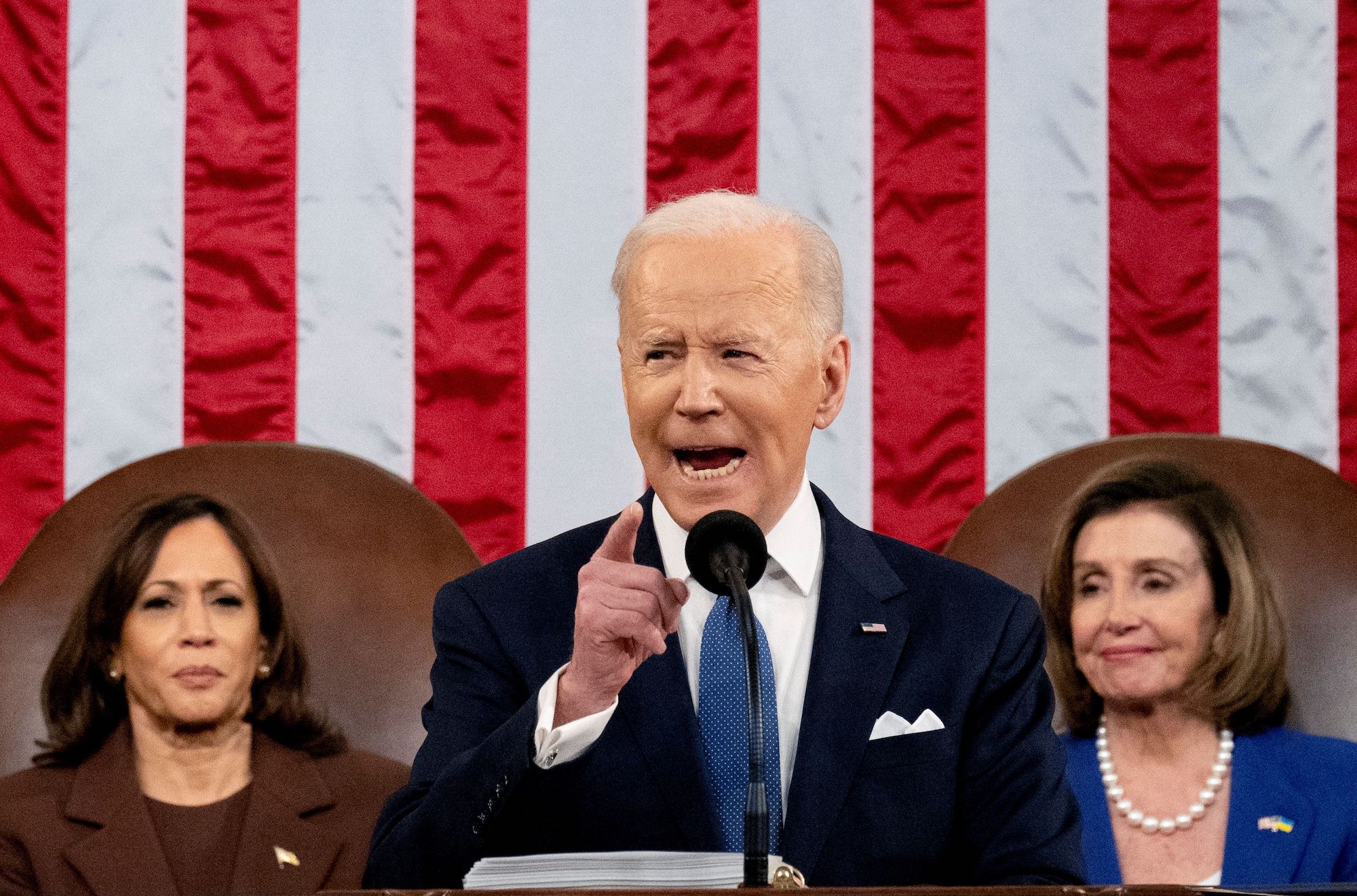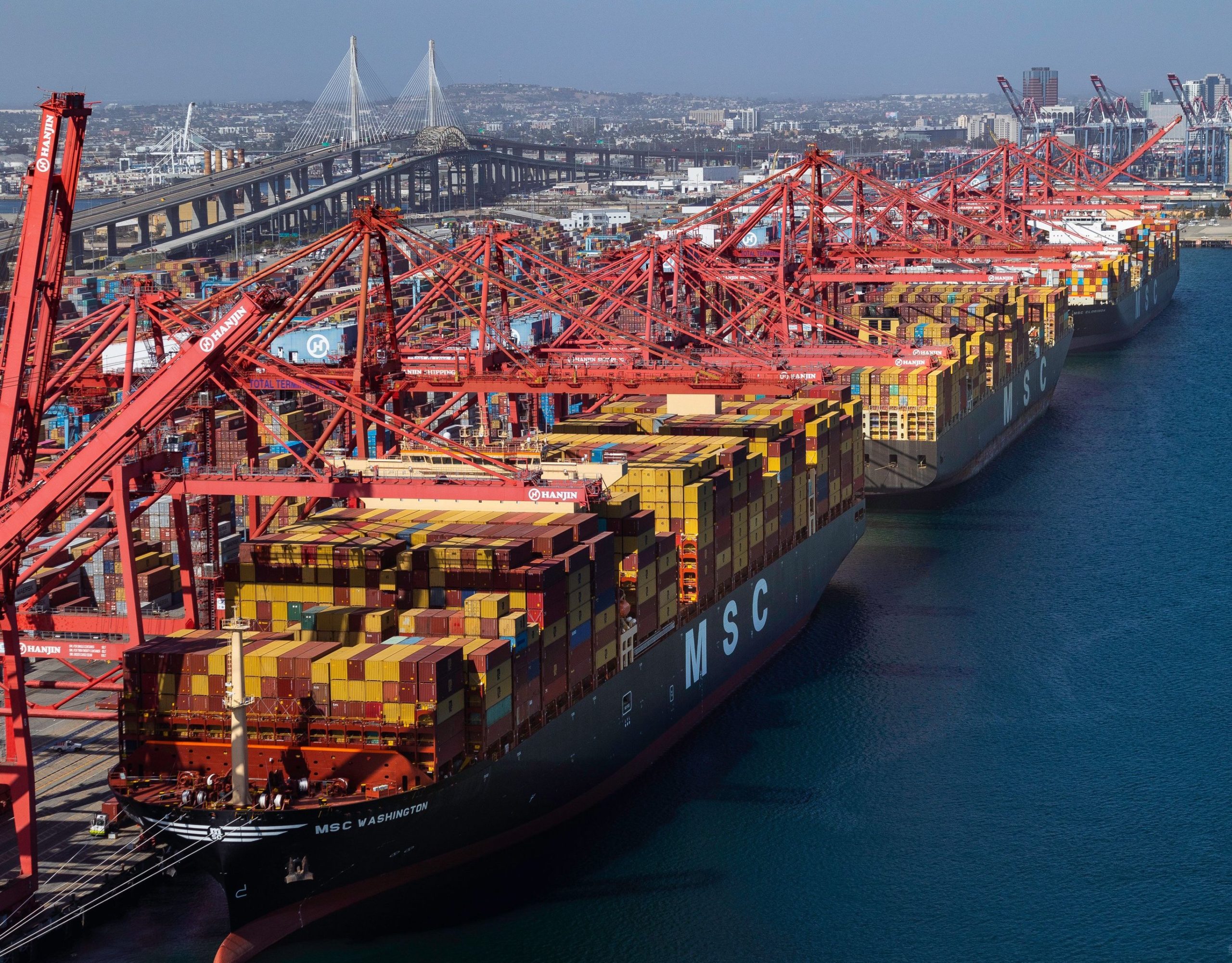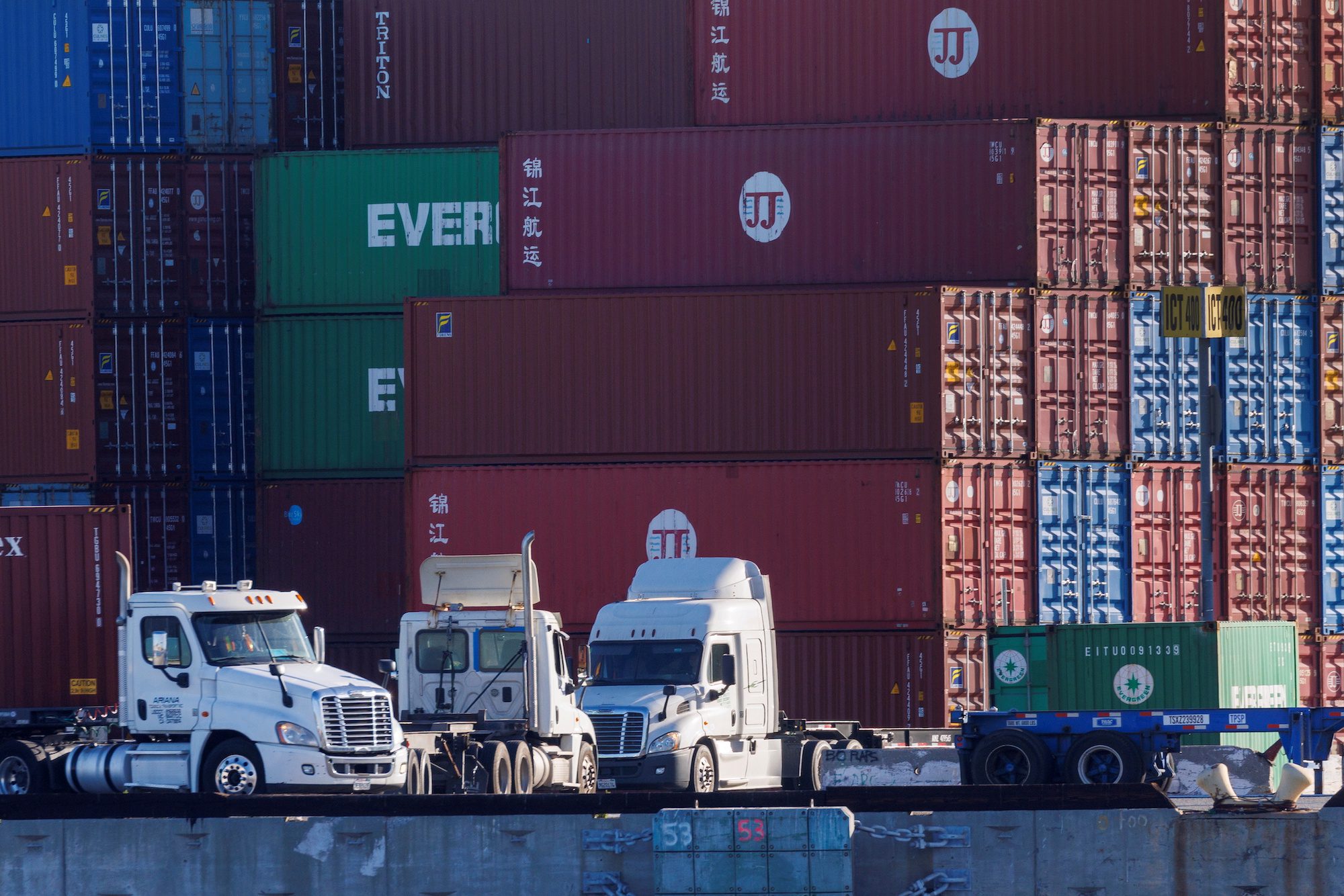President Biden is calling on Congress to “crack down” on ocean carriers who the president says are responsible for raising shipping costs, indicating that he’s ready to sign into law a bipartisan piece of legislation that could help bring down prices that have contributed to inflation.
“One of the reasons prices have gone up is because a handful of companies who control the market have raised shipping prices by as much as 1,000%. It’s outrageous — and I’m calling on Congress to crack down on them,” President Biden wrote in a Twitter post.
“We’ve got to change this. I asked the Congress to pass a piece of legislation to remedy this,” President Biden said in a video accompanying the tweet. “Democrats and Republicans voted for it, it’s over in the House of Representatives. I expect it to be voted on fairly shortly, and I expect it to pass. And I’m looking forward to signing it because we’ve got to bring down prices. The underlying elements of our economy are incredibly strong, stronger than any other nation in the world. But inflation is a problem. This won’t solve it all, but it will solve a big piece of it.”
The legislation President Biden is referring to is the Ocean Shipping Reform Act, which unanimously passed the U.S. Senate in late March (text). The bill provides the Federal Maritime Commission (FMC), the indepedent federal agency overseeing international ocean shipping on behalf of U.S. consumers and business, with greater authority and rulemaking ability over certain practices by international ocean shipping companies, such as detention and demurrage fees and services offered to American exporters.
The bill was introduced in the Senate in February by Senator Amy Klobuchar (D-MN), who said the bill would “level the playing field for American exporters” by making it harder for ocean carriers to refuse goods ready to export at ports. Similar legislation passed the U.S. House of Representatives with overwhelming bipartisan support in December.
If passed by the U.S. House of Representatives, as is expected, it would be the first major regulatory reform in ocean shipping in over two decades.
The World Shipping Council, the trade group representing international ocean carriers, says the bill wouldn’t address the root causes of landside congestion that have contributed to backups at U.S. ports.
“Instead of passing legislation that would do nothing to address the nation’s supply chain congestion, Congress should seek real solutions that take a comprehensive, forward-looking view. That means continued investment in port infrastructure and promoting communication, innovation, and collaboration across sectors to further strengthen the intermodal transportation system that has supported the U.S. economy throughout the pandemic,” the World Shipping Council said in March following the bill’s approval by the Senate Committee on Commerce, Science, and Transportation.
This all comes as the Biden Administration is cracking down on international ocean carriers and shipping alliances that stand accused stoking inflation by increasing rates during the pandemic. But according to the recent findings from a Federal Maritime Commission fact finding investigation, surging freight rates are the product of the market forces, particularly a combination of unusually strong demand from U.S. consumers, COVID-19, and congestion in the supply chain—not a lack of competition in the marketplace. Shipping alliances, or vessels sharing agreements, allow carriers to share vessels, exchange space, and coordinate scheduling and utilization, yet competition in and among them remains “vigorous,” according to the FMC’s fact finding investigation.
Still, the White House has frequently pointed to the fact that just nine ocean carriers participating in three global shipping alliances control 95% of the critical East-West trade lines, and this alleged lack of competition has contributed to rising shipping costs. “They increased spot rates for freight shipping between Asia and the United States by 100% since January 2020, and increased rates for freight shipping between the United States and Asia by over 1,000% over the same period,” according to a White House Fact Sheet issued in February titled Lowering Prices and Leveling the Playing Field in Ocean Shipping.
“When corporations don’t have to compete, their profits go up, your prices go up, and small businesses and family farmers and ranchers go under,” President Biden said during his State of the Union address in February. “We see it happening with ocean carriers moving goods in and out of America. During the pandemic, these foreign-owned companies raised prices by as much as 1,000% and made record profits. Tonight, I’m announcing a crackdown on these companies overcharging American businesses and consumers.”
Editorial Standards · Corrections · About gCaptain

 Join The Club
Join The Club











